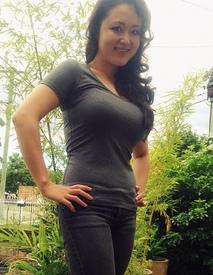We are pleased to announce that as of March 4, 2025, an updated Rich Text Editor has been introduced in the MyFitnessPal Community. To learn more about the changes, please click here. We look forward to sharing this new feature with you!
Where dietary fat goes without insulin.

Filmlotus
Posts: 54 Member
Hi everyone,
I'm new to low carb ketogenic dieting. I've been listening to Gary Taubes and Jeff Volek among other MDs and scientists about the effects of insulin in fat storage on the human body. This is especially true for those with insulin resistance.
Lately I have been trying bulletproof coffee, eating the fat on chicken wings, drizzling coconut oil on my food and just really curious where all this dietary fat is going in my body.
Without an insulin spike, where does the energy go exactly? Would 100% of the 1400 calories I've eaten consisting of fat be used up to maintain my body and activity, or is it possible that some of it will be stored in my fat cells, even without the presence of too much insulin? In other words, is it impossible to store dietary fat on a low to zero carb diet?
Can someone who has done some research shed some light on this?
I'm new to low carb ketogenic dieting. I've been listening to Gary Taubes and Jeff Volek among other MDs and scientists about the effects of insulin in fat storage on the human body. This is especially true for those with insulin resistance.
Lately I have been trying bulletproof coffee, eating the fat on chicken wings, drizzling coconut oil on my food and just really curious where all this dietary fat is going in my body.
Without an insulin spike, where does the energy go exactly? Would 100% of the 1400 calories I've eaten consisting of fat be used up to maintain my body and activity, or is it possible that some of it will be stored in my fat cells, even without the presence of too much insulin? In other words, is it impossible to store dietary fat on a low to zero carb diet?
Can someone who has done some research shed some light on this?
0
Replies
-
This may be an interesting place to start:
http://live.smashthefat.com/why-i-didnt-get-fat/ -- HFLC
http://live.smashthefat.com/why-i-did-get-fat/ -- LFHC
He is also currently doing it again... same calories, except this time vegan and LFHC. He seems to be gaining weight at a similar rate as the LFHC original one. His original hypothesis was that he wouldn't gain that much weight (it would be between the two other experiments). Time will tell what the final results are.
He has tons of articles on there about how much he ate and what exactly he ate. Short summary, he tried to gain weight eating HFLC, and gained much less than he should have and it seemed to be muscle mass.
Beware, it's a sample size of 1, so you're mileage may vary.0 -
At 1400 calories, you're likely still in a calorie deficit (unless you have a crazy low BMR), so therefore this is just being used as energy to maintain your body's basic operations. The deficit means that you also need to draw on additional energy from body's stores as well.
If you aren't eating at a deficit (ala Sam Feltham from the Smash the Fat n=1 experiments), well then... that is the question. Where did that energy go? My guess is that Sam had high-fat poop. (sorry to be gross).
I read this a while back a theory that on high fat, that your body will actually not absorb some of this excess fat, and it will pass through. Some people do note oily stools. But I've never seen this substantiated anywhere. I've googled this idea, and come up pretty empty. And I've never seen testing of LCHF vs LFHC caloric value of stools (and I would not want to be the scientist involved with that experiment!)
There does seem to be an assumption by the Calories In / Calories Out crowd, that all energy inputted into the system has to be either used or stored; they don't seem to consider the possibility that it could pass through. They also don't consider the possibility that your rate of burn for calories could change based on the type of calories that you are consuming.
Anyhoo... is it possible to store dietary fat when eating low to zero carbs?
This is a pretty good thread on the topic. Basically they conclude that you still need to maintain a calorie deficit. With a calorie surplus, you can still gain.
http://forum.lowcarber.org/archive/index.php/t-372487.htmlInsulin absolutely stimulates ASP, BUT... simply having fat (chylomicrons) in the bloodstream is enough to stimulate ASP, even with NO increase in insulin. There are studies that show that eating fat (or in some cases, infusing it) in the complete absence of increased insulin increases fat storage and inhibits fat breakdown. NO increased insulin (like from carbs) required.
As a matter of fact, ASP can stimulate the pancreas to release insulin. So, eat fat and the chylomicrons will stimulate ASP, which can in turn stimulate insulin release and fat storage.
IF you're dieting, and eating less than you need, none of this will really matter--sure, you may store some fat if you eat too much at one meal, but if your overall energy state is in a deficit, you will draw from the energy stores, and ultimately lose fat.0 -
Wow thank you very much kiramaniac and frob23. Both your replies were very informative.
At the rate I am eating, I am in a 700 calorie deficit. I lost 4kg in the first week of the keto diet, but the weight has stalled now (week 3). I'm still eating about 100g of fat, 25-30g of carb and 75-80 of protein a day, but the scale isn't changing much. What has changed is my strength at the gym and my measurments, so I am happy about that. The scales do lie sometimes.
Thanks for the interesting links!0 -
Take measurements too. And if you have a method available to calculate body fat %, monitor that as well (calipers, body fat calculators online that use measurements, scales, bod pod, etc).0
-
It is impossible to store fat on zero insulin (there's a reason Type 1 Diabetes has "weight loss" and "failure to thrive" as symptoms, and why diabulimia is a thing), but "zero carb" does not equal "zero insulin." Even though you're eating a high fat diet, the carbs and protein that you do eat will raise your insulin levels. Additionally, your body will make its own glucose for the things that absolutely need glucose to run, and that needs balanced out with insulin. Neither of these are necessarily a bad thing, because insulin has many uses, including helping with muscle building/repairing.
Now, because your body does still produce a certain amount of insulin, some of the excess calories will be stored as fat, and some of them will be excreted or used in different ways (such as heat, which isn't a bad thing for a lot of people). How much goes where depends entirely on the person. For anything below excess, your body can burn it just fine. Just like how different sugars have different pathways through the body, so do fats (the medium chain fats from your coconut oil can actually be used almost immediately, as they're compatible with the fats the body uses from its own stores).
That said, there are two things to keep in mind here:
1. If 1400 calories is less than your Total Daily Energy Expenditure (TDEE), then there is no "excess" energy to be had, regardless of the source. Your body can use fat, just like it can use carbs (contrary to popular belief, most of the body doesn't actually run on glucose).
2. It's quite difficult for most people to overeat on a high fat, whole foods diet. Fat is very, very satiating, and you don't get the glucose-insulin rollercoaster, which is what is largely responsible for people being "hungry" every couple of hours. They're not actually hungry, their blood glucose levels just spiked and crashed (and, like so many other things in the body, it's those dips and surges that trigger something, not the absolute, often momentary value).
http://www.proteinpower.com/drmike/ketones-and-ketosis/metabolism-and-ketosis/0
This discussion has been closed.


